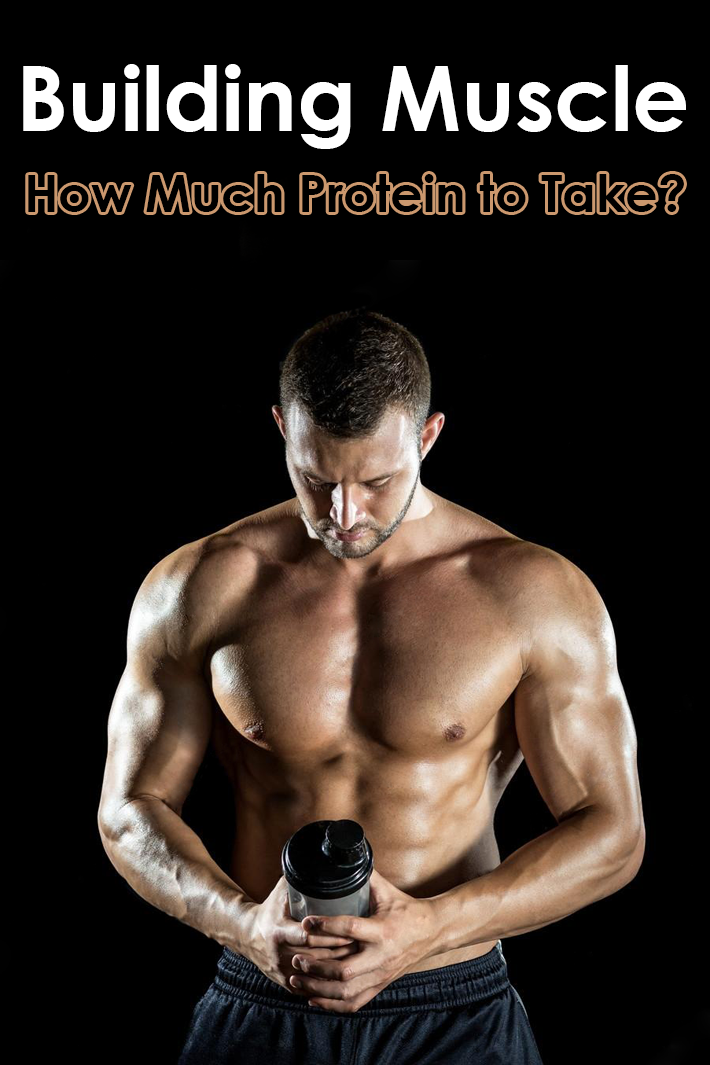
Getting enough protein is important, regardless of whether you want healthy skin and nails, to lose weight, or get bulging biceps. But “enough” could be the difference between eating a few extra eggs and washing down your steak with protein shakes. Here’s how to find out.
The “Official Guideline” Is Enough to Maintain, But More Is Better
Muscles hog most of the limelight, but healthy skin, hair, hormones, and organ function all require protein too. The Health and Medicine Division’s (formerly the Institute of Medicine) says the average sedentary adult should eat 0.36 grams of quality protein per pound of his or her total body weight each day. For example, a 150-pound office worker who doesn’t exercise would need about 54 grams of it a day to meet his basic nutritional needs. That’s about two fist-sized chicken breasts.
That’s also just the RDA, which is okay to live on if you’re sedentary, aren’t interested in any changes whatsoever, and get enough calories to maintain your weight. Most Americans already do a good job of meeting the RDA, but there’s a growing body of research that says most adults would see more benefits by eating more than the RDA.
The authors of this recently published review paper in Applied Physiology, Nutrition, and Metabolism note that higher protein intakes help whether you want to lose weight, keep weight off once you’ve lost it, or work toward athletic goals. Rather than nailing down an absolute number, the authors recommend a range between 0.57 to 0.76 grams protein per pound of body weight.
In other words, you’d be eating at least two times more protein. Eating more protein takes getting used to, and if you don’t have pre-existing kidney problems, high-protein diets are not bad for you. But they’re probably going to be more expensive.
You Need More Protein When You Exercise
When you throw in consistent exercise, your protein needs increase. In order to get stronger, the rate of your muscle repair and growth needs to outpace the muscle breakdown process. And for that to happen, you need to eat food and—yup, you guessed it—protein.
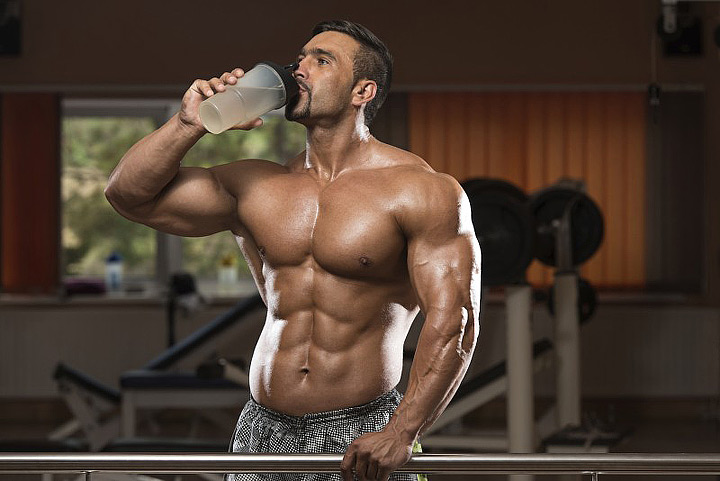
The type of exercise you do changes the recommendations a bit. Study in International Journal of Sports Medicine suggests:
- If you lift weights, go for 0.63-0.82 g/lb body weight.
- If you do endurance sports like running or cycling, go for 0.54-0.63 g/lb body weight.
Both of those ranges fall in line with the American College of Sports Medicine’s protein recommendations for active individuals, while the International Society of Sports Nutrition supports up to 0.9 g/lb body weight—just a tad higher. All in all, there’s consensus that people who work out should get twice the RDA.
More Protein Helps You Lose Weight
Ironically, you’ll actually need more protein than you would if you were trying to build muscle. When you lose weight, you break down tissue—including muscle tissue—faster than you create it, so the muscles you have will benefit from more protein. Here’s what “more” looks like when you want to lose weight and:
- You’re sedentary or do light activity: Aim between 0.45-0.68 g/lb of body weight.
- You’re highly active: Aim between 0.6-1.2 g/lb of body weight, especially if your goal is to maintain your muscle.
The source for this range comes from a paper in the European Journal of Sport Science. The authors maintain that the less body fat you have, the more you may benefit from the higher end of the range. That means you would base your actual protein intake on your lean mass (your ratio of muscle to body fat).
There’s one crucial point to note: if you’re obese and calculate your needs based on total body weight, you’re overdoing it on the protein. Go by your ideal body weight, not your current body weight. So if you’re 250 pounds and want to be 180 pounds, you’d multiply your intake by 180, not 250. (81-122 grams of protein per day for a sedentary person, for example.)
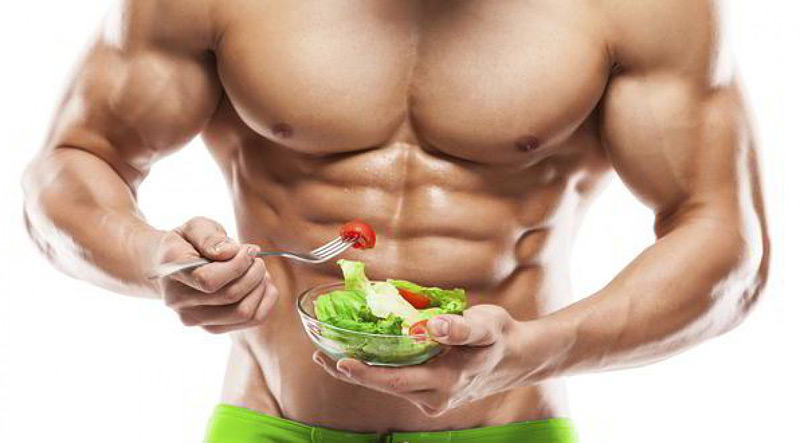
One major benefit of eating more protein when you’re trying to lose weight is subtle: high-protein foods help you feel more satiated than carbohydrates or fat and control your appetite. That’s a huge boon to your efforts. After all, you’d have to work really hard to overeat chicken breasts. At the end of the day, calories matter, so when you can make yourself feel full and satisfied, you won’t hunt for extra calories.
Another thing to consider is, if you’re working toward a more athletic-looking physique, you’ll see better results combining a higher protein intake with a weightlifting program. According to this review in the Journal of Sports Science, the effort from lifting weights gives a more powerful signal to your muscles to “stick around” than just eating high amounts of protein alone.
If You Want to Build Muscle, You Need Less Than You Think
In general, eating 0.36 to 0.54 g/lb of your body weight, alongside an appropriate weightlifting program and eating adequate calories to maintain (or gain), is enough to build muscle. That said, some folks in fitness circles swear by higher protein, at least 1 g/lb of body weight to build muscle. Kamal Patel, director of independent nutrition research site Examine.com, explained why that number doesn’t apply to most:
The vast majority of lifters won’t get any additional muscle building benefit from eating more than 0.8 g/lb or so. This number can actually go down as you get more experienced and need less protein, since you’re not a newbie and hence, not breaking down a ton of protein during lifting sessions.
Indeed, a study in the Journal of Applied Physiology took 12 novice lifters and had them take either 0.61 g/lb or 1.19 g/lb over a 4-week period. The researchers found no differences in strength or muscle gains between the two groups. There is, however, a caveat: studies like this one often look at short-term results, so the long-term outcome is less clear.
This is not to say the 1 g/lb guideline is totally bogus; it’s just not necessary for people who are overweight or obese, or for people who are already eating plenty of calories. As Alan Aragon, an educator for the National Strength & Conditioning Association, told me, “With inter-individual variability in mind, you can’t just make the universal claim that 1 g/lb is not appropriate for anyone.”
For now, here’s the scoop: eat more protein if you want to, but after a certain point, more protein isn’t going to help you build muscle any faster. Beyond that, the “extra” is just calories.
Older Adults Should Really Eat More Protein
A high-protein diet is a big deal for healthy older adults. In fact, Patel thinks it’s most critical for older adults to increase their protein intake.
Since aging makes it harder to grow muscle due to various physiological factors, it’s important to get higher protein intakes than even the average young person, especially if you don’t have much muscle to start with and you’ve just started exercising as a 60-year-old.
Patel isn’t alone in this. Studies like this one in The Journals of Gerontology have indicated that strength (especially lower body strength) is closely related to survival and a higher quality of life in your later years. That means older adults, age 65 and over, would benefit from eating at least 0.54 g/lb body weight or more to mitigate muscle and strength loss that’s a part of the aging process.
Make Your Protein Intake Work For You
Protein recommendations aren’t so clear-cut. If you just want a rough and simple guideline given to you straight, Aragon suggests going with 1 g/lb of lean body weight and adjusting as needed. If you don’t know your body fat percentage, then go with your goal weight. For instance, if you currently weigh 150 pounds and would like to weigh 125 pounds, then aim for 125 grams of protein.
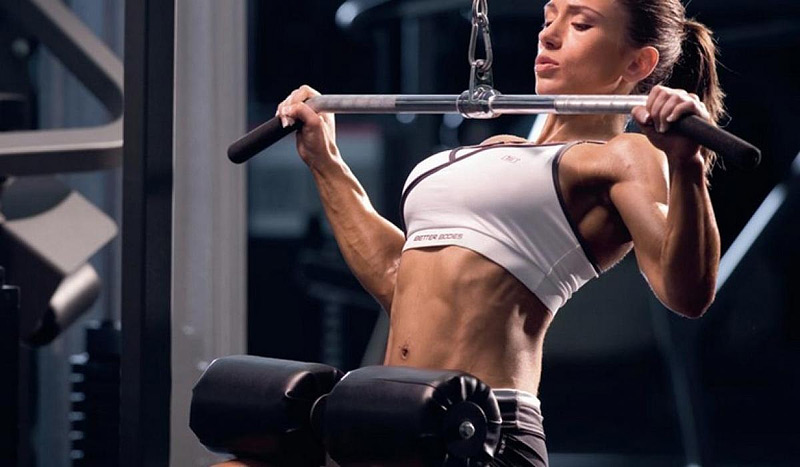
For more flexibility, experiment between 0.36 g/lb (the RDA) to 0.82 g/lb according to what we discussed. Not only do you need to adjust your intake based on your goal of building muscle, losing weight, or maintaining, but you should also consider how intensely and frequently you train, your lifestyle, eating habits, and availability of foods, to name a few examples. Maybe you need extra high-protein foods to feel full, or maybe you need to cut back a bit because all those lean meats and shakes are hitting your grocery bill pretty hard.
In any case, it’s like a tricky game of food Tetris to fit an appropriate protein target into your calorie goals, without it stressing you the heck out or it being so high that you can’t have your (beef)cake and eat it too.
Please follow us on Pinterest and enjoy our collection of recipes, crafts, fitness, health tips, gardening, DIY and more…
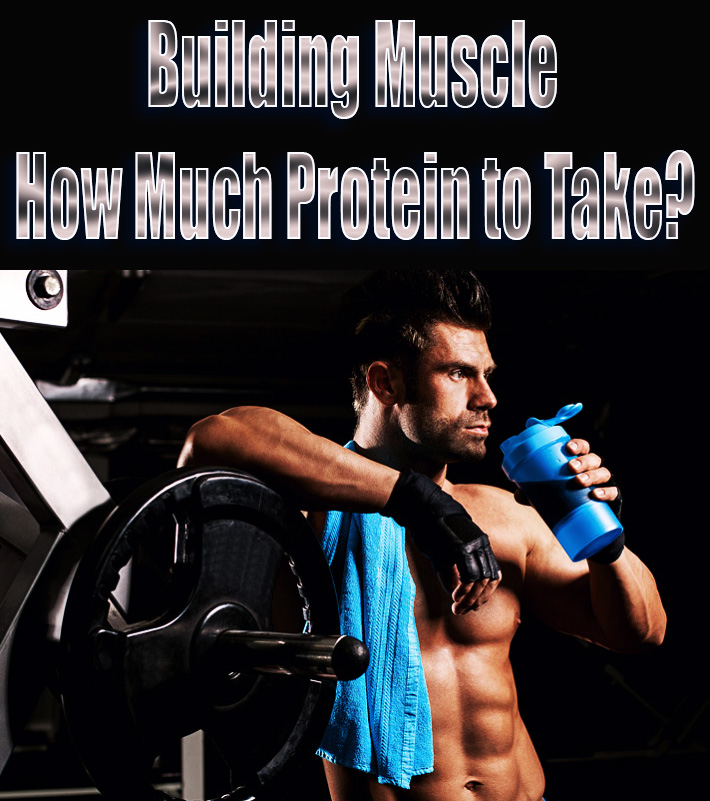




What is your recommendation for a person (like me) who wants to shed fat, get fit and then build muscle subsequently at the age of 42 ?